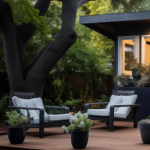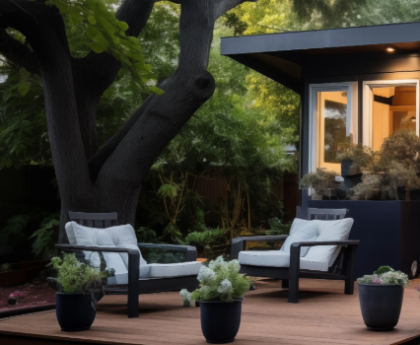San Jose has become the first city in the state to embrace a new law allowing homeowners with backyard granny flats to sell them as condominiums.
The Bay Area’s largest city employed Assembly Bill 1033 to pass an ordinance letting homeowners buy and sell their accessory dwelling units, or ADUs, separately from their primary house, the San Jose Mercury News reported. The local law takes effect July 18.
“ADUs are one of many solutions to expanding our housing stock,” Mayor Matt Mahan told the newspaper. “The ability to sell them as their own asset will serve an interest in the development of ADUs in the community.”
AB 1033, passed last year, allows cities and counties to permit such sales apart from a main house.
Construction of backyard granny flats has taken off across the state, as property owners take advantage of new streamlining laws that make them easier to build. Last year, California added a record 22,802 ADUs, one out of every five new homes across the state.
By allowing the smaller homes to be put on the market, the supply of “naturally occurring” affordable housing will rise, housing advocates say.
“By virtue of these being smaller homes on smaller lot sizes, we expect them to trade at significantly cheaper prices than single-family homes in San Jose,” John Geary, CEO of Los Angeles-based Abodu, which produces pre-manufactured ADUs, told the Mercury News.
ADUs can be up to 1,200 square feet on lots of 9,000 square feet or larger, and up to 1,000 square feet on smaller lots. Someone who buys an ADU as a condo couldn’t bulldoze it for a larger home.
With a typical listing price for a home in San Jose last month at $832 per square foot, a 1,000-square-foot ADU might sell for $832,000. The median sale price of a 1,700-square-foot home was $1.4 million.
AB 1033 gives homeowners a chance to make money on their homes without having to sell, which they may be reluctant to do with mortgage rates now around 7 percent, according to Mathew Reed, policy director for SV@Home.
“This will create opportunities for homeownership at price points not currently being met by the market,” Reed told the Mercury News.
Unlike the controversial Senate Bill 9, which allows homeowners to create two separate lots, a homeowner using AB 1033 must set up a homeowners association for the main house and ADU “condo.” Governing documents would determine how common areas, such as a shared yard, would be maintained and fixed.
Other cities, such as Berkeley, could soon follow in San Jose’s lead. The East Bay city expects to pass a similar ordinance next year.
Traditionally, landing construction loans for ADUs has been harder than for primary homes, according to the Mercury News.
But this fall, the Federal Housing Administration expanded access to mortgage financing for homes that have or could include construction of an ADU, which could spur further growth of the backyard cottages.
— Dana Bartholomew
Read more

Residential
San Francisco
Berkeley could become state’s first city where homeowners sell ADUs

Residential
Los Angeles
California’s new ADU law leaves agents with more questions than answers

Residential
Los Angeles
Invitation Homes files $5M lawsuit against ADU startup




